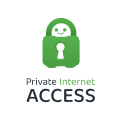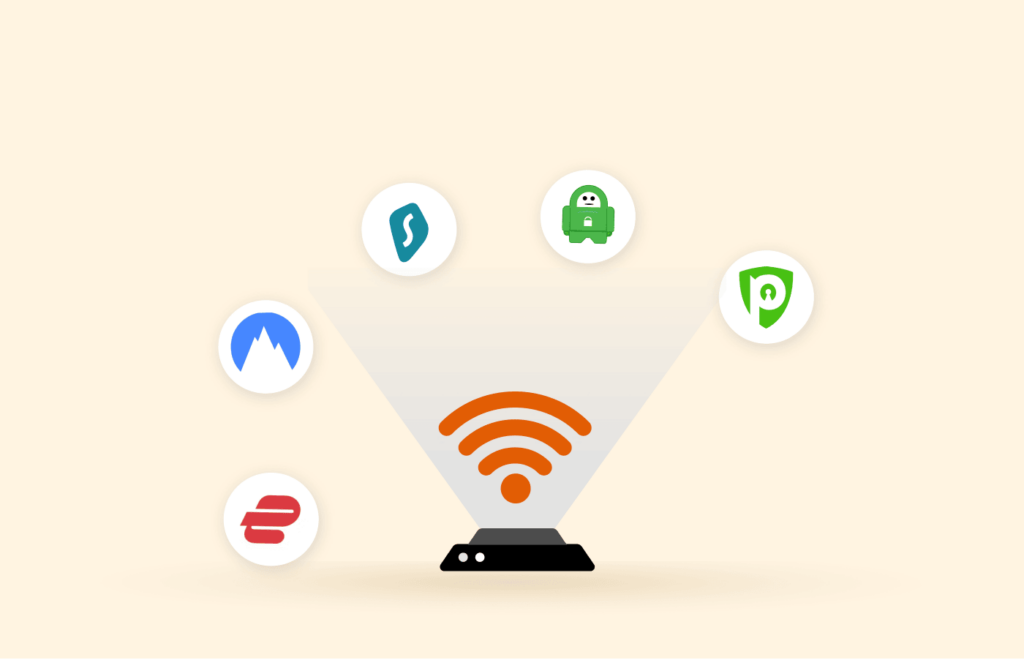Public wifi hotspots are a sign of our times. They’re ubiquitous and growing more frequent. Also, they are efficient and convenient. Unfortunately, they can also be the death of digital privacy and security unless you know how to protect yourself when you use them — which is to use a good VPN.
Hundreds of VPN providers are available in the market, but if you want to know that the VPN vendor you choose will deliver everything you want and expect from a VPN, you must choose wisely. So let us tell you the best VPN services for staying safe in wifi hotspots.
Best WiFi VPNs – Quick list
If you don’t have the time to read our full article and see what we have to say about each VPN in detail, here is a quick list of the best VPNs for those in a rush.
- NordVPN. One of the most advanced VPNs in the market will also deliver the goods when you’re on public wifi. Five thousand servers, the ability to unblock Skype, Netflix, and many more websites, a friendly app, excellent chat support, great security, and a strict no-logs policy make this one of the best VPNs for any task, wifi included.
- Private Internet Access (PIA). This VPN is known in the industry for its commitment to user privacy and is the largest VPN server network on the planet, with more than 35.000 nodes available.
- ExpressVPN. The best VPN to have in a public wifi network. The server network spans 94 countries, it has terrific speeds, good security, lots of extra features, excellent customer support, and friendly apps, and it can unblock any digital service you want.
- PureVPN. An excellent VPN that doesn’t get as much attention as it deserves. It’s a powerful and versatile service that always keeps your mobile devices safe.
- Surfshark. Top-notch service at a meager price. This young VPN already has a vast server network, many exciting extra features, no connection limits, and good privacy policies.
Public Wifi and VPN combination – Why do you need one?
Public wifi hotspots are very lovely indeed. They’re convenient. You can work at your favorite coffee shop or keep in touch with your important contacts at the airport or hotel.
But hackers like public wifi even more. It’s their paradise, and wherever you can find one popular hotspot, you’ll also find a bunch of happy hackers sniffing around the traffic, searching (and finding) new data to steal. So whenever you’re in, say, a hotel, and you use the hotel wifi hotspot without a VPN, you broadcast all your data to the world — unprotected, unencrypted, and ready to be stolen.
An example is the MITM (man-in-the-middle attack). Here, a hacker mediates between you and your web server. From then on, everything you do, write, and read is in the hacker’s hands. A good hacker could learn enough to steal your identity. You could get in serious trouble if you are careless and perform more sensitive online activities like online financial operations.
A wifi VPN creates an encrypted tunnel connecting your device and the VPN server. All the traffic is scrambled, so no third party or external observer can determine its content. Those third parties could include your government, hackers, ISPs, or the hotspot provider.
Also, the best VPNs include additional features that enhance their security, like DNS and IPV6 leaks and a kill switch.
Best 5 VPNs to Protect wifi privacy
A suitable VPN in public wifi hotspots must provide the best security under the most hostile conditions, high speeds, and friendly apps. Therefore, we also looked at the following things to narrow down our selections:
- The best possible encryption level for security.
- Additional security measures like a kill switch.
- A privacy policy that involves keeping no logs.
- Reliable servers for every task.
- A server network that includes plenty of countries.
- Customer support has a live chat feature.
- User-friendly apps.
1. NordVPN

Second best and excellent VPN for service regarding public wifi hotspots. It hasimpressive securty and privacy features including Double VPN feature and many more.
Pros
- Excellent prvacy features
- Simple interfacce
- Responsive customer support
Cons
- Large number of features complicates the user
NordVPN is also one of the best VPN services in the market. It’s thoroughly advanced, versatile, and powerful. Moreover, the speeds are impressive in any of the 6,800 servers comprising the network. So, you will always have plenty of secure servers to reach wherever you are.
It is also a great vendor for unblocking geo-restricted websites and services. Netflix and Skype come to mind first, but this provider can handle any you need.
The software is very well-designed, clear, intuitive, and straightforward. In addition, there are browser extensions and a competent team of customer support agents ready to serve you on a 24/7 basis. Your account is suitable for six concurrent connections to the network.
Hackers, ISPs, and governments can’t break NordVPN’s AES-256 encryption. The apps come with a kill switch, and the servers are good against DNS and IP leaks.
Since this is the article about VPNs for public WifI hotspots, we need to mention that NordVPN has an automatic “VPN for wifi” feature, which joins the VPN network as soon as it detects you’re on a wifi network.
There are available apps for Windows, macOS, Android, iOS, and Android TV. Besides that, any device at your home can enjoy NordVPN’s thorough protection if you install it on your home router, and then you don’t need the app on every device.
2. Private Internet Access (PIA)

Extensive servers netwok service this means you can make yourself totally save in public wifi hotspots anywhere in the world.
Pros
- Extensive server network
- Good connection speed
- Supportive customer support
Cons
- Based in 5-Eyes jurisdiction (the US)
Private Internet Access (PIA) is known in the industry for its commitment to user privacy, which has withstood the test of the courts of law.
The vendor’s humungous server network, with over 35,000 nodes, is also quite famous. So, more computers serve the PIA users than our other four options.
PIA’s simplicity is also a plus for newbie VPN users who still haven’t learned the ropes.
This VPN has options for AES encryption. The default algorithm is AES-128, but you can change your app’s setup to upgrade to AES 256, the standard almost everywhere. And while AES-128 is a robust enough encryption with no successful attacks, it would always be better to have the 256-bit version as a precaution.
The connections to PIA servers are very stable and reliable, but the speeds are not the best, we must say. Don’t be deceived, though. PIA is still a faster VPN than the market average, but its speeds pale compared with Surfshark, NordVPN, or ExpressVPN.
The main deal breaker for most potential users will probably be that PIA is not the best option for geo-blocks. While this VPN can manage some video streaming services, they are few and far from the most interesting.
3. ExpressVPN

The best and our top recommended VPN serrvice for Wifi. With its top-notch secuity and privacy features you are totally save while using public wifi hotspots.
Pros
- Super-secure security and privacy
- 24/7 live chat support
- Blazing-fast speeds
Cons
- Bit pricier compared to industry knowledge
ExpressVPN combines a powerful combination of the best speeds and security in the VPN-verse. So it’s our top pick of an excellent VPN for public wifi hotspots.
A network spanning 107 countries with over three thousand servers ensures you will always find a fast and reliable server to connect to, regardless of your physical location.
ExpressVPN excels at every digital task. So whether you’re looking to browse the web, see your email, listen to music, edit documents on the go, or watch videos from even the most restricted video streaming platforms, such as Netflix, this vendor will perform in style.
Since security is the main pitfall in public wifi hotspots, the security features in your chosen VPN are critical. And ExpressVPN delivers the goods in this regard as well. The traffic encryption is AES 256, and the network is thoroughly effective against DNS and IP leaks, a kill switch, split tunneling, and much more. All these things come as close as possible to a 100% guarantee of your internet traffic, even in those wifi hotspots where your city’s best hackers butter their bread.
Last but not least, ExpressVPN has user privacy at heart, too, because it keeps no logs of user activity. Unfortunately, it’s not just a policy but a physical impossibility since their server is all RAM-only, without conventional hard drives that can store any information after a reboot.
ExpressVPN software is available as a mobile app for iOS and Android devices; VPN clients are also available for macOS, Linux, and Windows. Google Chrome and Mozilla Firefox browser plugins are available, too.
The ExpressVPN browser plugins are unique in that they are control interfaces for the complete service in a device. Other such plugins are not. Instead, they provide VPN protection for web browser traffic only.
4. PureVPN

VPN service that does not compromise on users’ privacy. It does not retain any log on users so you are extremely save while using public wifi hotspots.
Pros
- Best secret keeper
- Has decent speeds
- Supportive customer support
Cons
- Little complication in UI app
So far, we’ve covered excellent VPN vendors with considerable international reputations. Of course, PureVPN is also a fantastic VPN, but it seems one of the industry’s best-kept secrets because it doesn’t share in any of our other VPNs’ fame despite being outstanding.
The server network has 6,500 servers in 78 countries. As a result, users enjoy unlimited bandwidth, support for P2P traffic, and some of the best security features around the market.
Encryption is AES-256; as you’d expect from any decent VPN by now, it has a kill switch and a privacy policy that prevents any log-keeping on user activity.
This vendor was originally incorporated in Hong Kong. Then, it moved to the British Virgin Islands as it became clear that the Chinese government wouldn’t be the friendliest towards VPNs after 1997. It was a good decision as their new adoptive country’s legislation is very friendly to digital privacy.
Other security features include split tunneling and a kill switch.
It’s very reasonably priced, even more so than our next entry, as it does everything the best VPNs are supposed to do — unblocking Netflix, working in China, and avoiding any log-keeping.
PureVPN’s approach to external audits is breaking new ground in the industry as it’s arranged a permanent contract with KPMG, in which the service is constantly undergoing continual auditing.
5. Surfshark

Budget-friendly VPN with strong privacy and security features. You can have premium services at low cost.
Pros
- Unusually affordable subscription plans
- Fast speed
- User-friendly apps
Cons
- Speed lags with distant servers
Surfshark is a relatively new VPN that has quickly earned an excellent reputation. However, it’s disrupting a usually stable market by offering a top-notch service that can compete with any of the best ones on the internet at a fraction of the average market price.
This VPN for wifi has straightforward apps, which is a plus when you’re online on the road (like when you need to use a public wifi hotspot).
It can unblock several vital video streaming services, including Disney+, Amazon Prime Video, and Netflix, to name only the most popular ones.
The security features with Surshark rank there with the best. These include AES-256 encryption, perfect forward secrecy, a kill switch, DNS leak protection, and an automatic option to go online into the VPN when a wifi connection gets detected. Also, Surfsharks keeps no logs.
Surfshark apps for macOS, Linux, Windows, Android, and iOS can be found. In addition, it has a few browser extensions and plugins, and you can use it on several routers.
VPNs comparison table
| Website | www.NordVPN.com | www.ExpressVPN.com | www.Privateinternetaccess.com | www.PureVPN.com | www.Surfshark.com |
| Streaming services | Netflix, Hulu, Amazon Prime, BBC, iPlayer, ITV Hub | Netflix, Amazon Prime, Hulu, BBC, iPlayer, ITV Hub | Netflix, BBC, iPlayer, ITV Hub, Hulu | Netflix, BBC, iPlayer, ITV Hub, Hulu | Netflix, Amazon Prime, BBC, iPlayer, Hulu, Disney+ |
| Server countries | 113 | 105+ | 91 | 78 | 100 |
| Devices supported | Windows, macOS, Android, iOS, Smart TVs, Routers | Windows, macOS, Android, iOS, Linux | Windows, macOS, Android, iOS | Windows, macOS, Android, iOS, routers | Windows, macOS, Android, iOS, Linux |
| No logs policy | Yes | Yes | Yes | Yes | Yes |
| Kill switch | Yes | Yes | Yes | Yes | Yes |
| Pricing: The best deal (per month) | Starting from $3.99 | Starting from $8.32 | Starting from $2.29 | Starting from $2.00 | Starting from $2.39 |
How to find the best wifi VPN
Finding excellent general-purpose VPNs is already tricky enough, let alone one that is good enough to handle public wifi hotspots, which are the most hostile digital environments regarding privacy and security.
We used a set of criteria to identify the best VPNs for wifi from the rest and develop the selection we offer you in this article. These are the criteria:
- Good apps for all the relevant systems. A VPN you can’t use in Windows, macOS, Android, and iOS looks fishy. If it doesn’t work with those environments, then where does it work?
- Additional features. No VPN gets extra points for encryption and IP masking. That’s the very least that any self-respecting service should do. Advanced features are essential because they increase a VPN’s reliability and security. Also, they make them more versatile and helpful.
- Privacy policy. A no-logs approach is critical to protect your privacy even within the VPN network.
- Server speeds. Using a VPN is always going to cost some speed. However, a good one is efficient enough so that the decay of your baseline speeds should be impossible to notice unless you measure it carefully. Also, high-speed VPNs are suitable for online gaming, video streaming, torrenting, and other resource-demanding tasks.
- Ability to bypass geo-blocks. In the post-covid world, unblocking video streaming platforms is a VPN’s most sought-after use case. Consequently, the best VPNs can pull this trick off without problems.
- Excellent customer service. A VPN works on your device’s most fundamental level and user experience. Therefore, when something goes wrong, you need to have it fixed as soon as possible, and we picked VPNs that know this and act accordingly.
Getting a VPN for public wifi hotspots

Below are the steps to follow to remain safe using the best wifi VPN:
- Pick a top-notch VPN vendor, and subscribe.
- Find your new provider’s software for the device you want to secure.
- Download and install the VPN app.
- Launch your app. Log in to the VPN and pick a server to connect to.
- You’re home!
How safe am I in a public wifi hotspot with a VPN?
Most public wifi hotspots allow any user to connect automatically to the network. But you must start with a website (known as a “captive portal“). In it, you’ll have to agree to the network’s terms of service before you can do anything else — including connecting to your VPN.
So even if you’re using a VPN for wifi, when you join the public wifi, you will have to put up with a gap from when you connect to when you agree to the terms of service. You are utterly vulnerable during these few seconds.
It’s a minimal period, but it’s there.
Nevertheless, if you have a VPN, you’ll be perfectly safe (or as nearly as it gets) the rest of the time, while you would remain vulnerable otherwise.
So, to answer the question in this section, you are always safer with a VPN, even in public wifi hotspots. The gap is hardwired into the login process, and you can’t avoid it, but you can ensure your privacy and security the rest of the time.
How to avoid Wifi hackers on public hotspots
- Turn off auto-connect: Disable the automatic connection to public Wi-Fi networks since you never know when cybercriminals can intercept your traffic.
- Double-check the name of the network you intend to use. A network connection with a similar name to the legitimate one is one of the hacker’s tricks. The appropriate network helps to evade the Evil Twin attack.
- Limit yourself to networks that require credentials, a password at least. These are slightly safer than completely unprotected wifi networks.
- Only access safe websites: Always visit websites with secure HTTPS protocols because cybercriminals may redirect you to different sites.
- Avoid entering sensitive details: Malicious actors can access your sensitive information, like banking details or passwords since most public Wi-Fi networks have inferior security.
- Enable multi-factor authentication: This is a great security measure to prevent hackers from accessing your accounts. They cannot get in without authenticating themselves.
- Employ good password hygiene: A robust password is difficult to crack. So, use a password manager to generate and store strong passwords.
- Watch out for shoulder surfing: Be conscious of your environment when using your devices in public. Cybercriminals may spy on you when typing sensitive data.
- Toggle the Wi-Fi network to ‘Public’: Set the Wi-Fi to ‘Public’ to prevent other devices from seeing you are connected to it. For example, Windows has the ‘Disable device discoverability’ feature.
Can I use a free VPN in public wifi hotspots?
You can, but you should not. We always advise our readers against using free VPNs for any reason whatsoever. In the case of wifi hotspots, consider this:
- Free VPNs are not safe. Many do not encrypt their traffic or are vulnerable to IP address leaks. So, using one of those doesn’t give you any advantage over regular users.
- Free wifi VPNs use your privacy to pay for their bills. They keep detailed and extensive user logs to sell to their commercial partners later.
- Free VPNs lack the functionality or resources for a smooth user experience. The servers are overworked; their bandwidth is congested, etc.
Other ways a VPN can be helpful
There are many ways a VPN can be helpful:
- Enhancing security on public Wi-Fi. Public Wi-Fi networks are often less secure than private ones, making it easier for hackers to access and steal your data. A VPN can protect you when using public Wi-Fi by encrypting your connection and masking your IP address.
- Unblocking websites and content. Some websites and content are restricted in certain countries or regions. A VPN can help you bypass these restrictions and access blocked websites and content from anywhere.
- Protecting against surveillance. A VPN can help protect against government surveillance by encrypting your internet connection and making it difficult for authorities to monitor your online activities.
- Bypassing censorship. Some governments censor certain websites and content, blocking you from accessing them. However, a VPN can help bypass censorship and restore internet freedom.
- Restrict data collection from markets and ISPs. For example, marketers such as Facebook make money from user data used in advertising. Again, a VPN would help protect your data being collected.
- Improved e-commerce security. Purchasing from a website you are unfamiliar with might feel risky. Financial data is safer while using a virtual private network (VPN).
- Activism. Journalists, activists, and whistleblowers may use VPNs to mask their identities while researching or publishing.
Standard hacking methods on Wi-Fi hotspots
There are several standard methods hackers may use to try and compromise Wi-Fi hotspots:
- POP3 snooping. In this method, cybercriminals may obtain users’ email addresses and other sensitive data through POP3 snooping when the users’ devices sync with POP3 servers.
- Fake fees. Some cybercriminals charge individuals to connect to their Wi-Fi hotspots and steal sensitive information.
- Physical exploits. KRACK is a vulnerability in older routers that may be used to launch physical attacks. This might again open the door for the hacker to steal personal information.
Major threats to wifi connections today
1. Wifi pineapple
Wifi Pineapple is a device capable of executing advanced network attacks. It locates all the SSIDs (Service Set Identifiers) available at a spot, scans them, and then rebroadcasts the SSID names to entice other devices to connect to it, thinking they’re trying to connect to the legitimate owner of the original SSID name.
2. Man in the middle attack
A hacker positions himself between you and the rest of the internet. For instance, they use the pineapple in the last section to have you connect to their device. Once they are in, everything you do is visible to them; they can trace it and record it, and if you use usernames and passwords during that session, they’ll have that information, too.
In this modality, the hacker can intercept everything you do online unless encrypted.
3. Evil Twin Attack
In an evil twin attack, a rogue actor sets up a wifi network near the restaurant, hotel, or coffee shop you frequent. Their host looks legit because it’s meant to mimic the services available in nearby businesses. But, unfortunately, once you connect, you’re the victim of an MITM.
4. Cookie Side Jacking
A good hacker steals the cookies from your device, facilitated by the public wifi hotspot. Then, once he has all the proper cookies, he can have websites treat him as if it was you, and you had already logged in –so he doesn’t need to steal your username or password to usurp your account.
5. Computer worms
A hacker could plant a worm in a public wifi access point. Then the worm is there, waiting for anybody to come by and infect him.
The NSA’s take on Wi-Fi hotspots & VPNs
The National Security Agency (NSA) advised using a VPN when connecting to a public Wi-Fi network in a study released in June of this year. The agency agrees that using a VPN service may be expensive, but the value and advantages of using a reliable service outweigh this.
It’s better to pay for a premium VPN service than to risk your bank account, credit card, and personal information each time you’re connected to public Wi-Fi networks. Most publicly accessible Wi-Fi hotspots often have inadequate security measures, according to a report dubbed Best Practices for Keeping Your Home Network Safe. This is because providers rarely invest in their Wi-Fi hotspots’ performance and capacity.
A word on Wi-Fi VPNs from the files of the FCC
A report by the FCC titled The Cyber Security Planning Guide advises firms offering consumers internet-based remote access to take precautions. In addition, the FCC recommends using VPNs as a reliable technique to provide the security and access authentication needed for business infrastructure.
The report emphasizes ensuring proper security and encryption when using or configuring Wi-Fi professionally. The 1934 establishment of the FCC is the US government’s response to the changing challenges brought on by advances in communications technology.
Similarly, a study released in May by the Chief Information Officers Council claims that a VPN is the only way to maintain the cryptographic strength required for a wireless network (Wi-Fi) to be safe.
Are VPNs legal in my country?
VPNs are legal digital services throughout most of the world, except for these ten countries:
- Belarus
- China
- Iran
- Iraq
- North Korea
- Oman
- Russia
- Turkey
- Turkmenistan
- The United Arab Emirates
So, unless you live in one of those jurisdictions, you can feel perfectly safe about your VPN.
FAQs
No, it’s not. The hotels keep their wifi networks accessible to their clients, which means security is fragile.
Yes, they can. These networks are usually unencrypted, so any data through them is accessible to anybody who can read it. So, browsing history is only one of the things that a public wifi provider can figure out about you.
Using a VPN shouldn’t interfere with your Wi-Fi. So, if you’re having trouble, like dropping your VPN connection or losing your Internet connection, it’s probably due to a misconfiguration. Also, your VPN connection may experience sluggishness at times. This is because your data has to go via multiple servers, thus decreasing your speeds. However, if you use a reliable VPN, like the ones we mentioned in this post, you should be able to locate many quick servers that work with your unique Internet setup.
You may use router network settings to deactivate the VPN if you do not want the devices connected to your Wi-Fi network to use a VPN connection. For example, if a computer on your Wi-Fi network tries to tunnel its connections using a VPN, this will block it from connecting to the internet.
Yes, you should use a VPN for your home Wi-Fi. No matter where you connect, governments, cybercriminals, or even your Internet service provider can track your Internet usage and behavior. A VPN also lets you access content unavailable in your country.
A VPN won’t improve your Wi-Fi, but it will encrypt your device’s data. However, VPN speed varies. Some VPNs slow down browsing, while others don’t. As such, it is advisable to use reliable VPNs.
